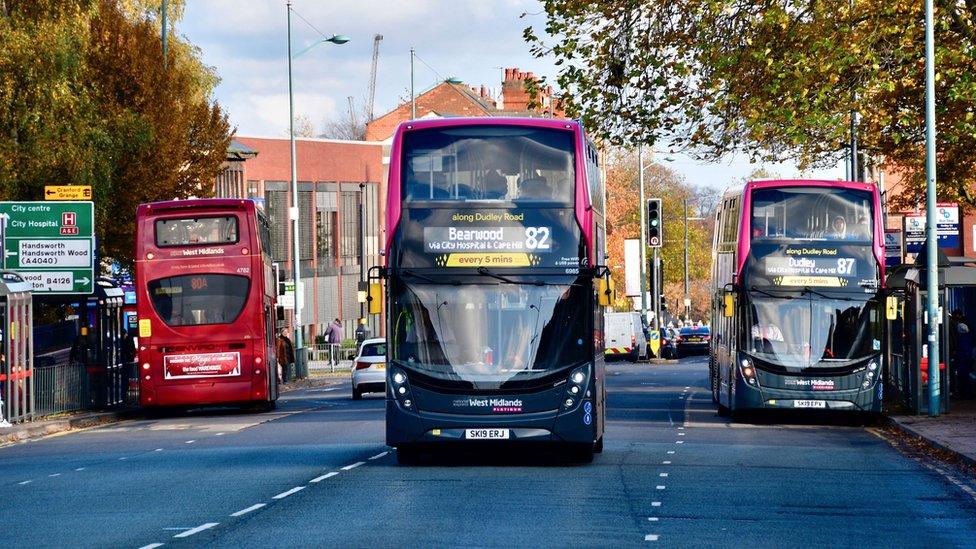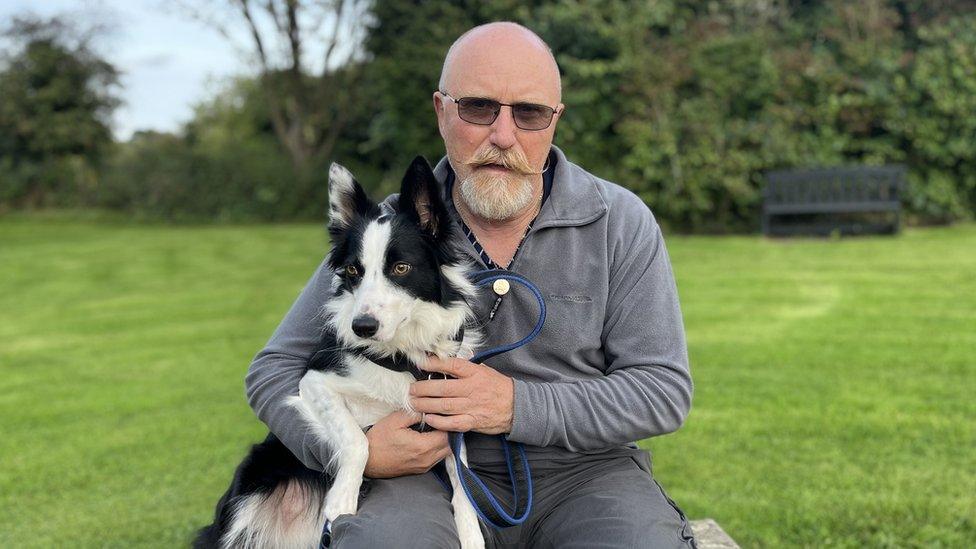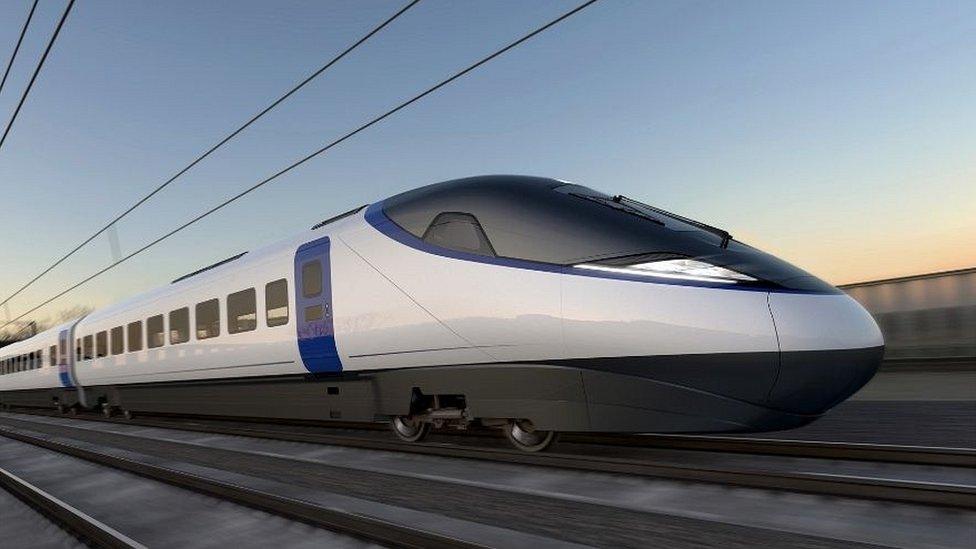HS2: England's buses get £150m boost from cancelled leg
- Published

The government has reallocated £36 billion of HS2 funding to improve rail, roads and buses across the North of England and Midlands.
Bus services in parts of England will get a £150m boost due to the scrapped Birmingham to Manchester leg of HS2, the prime minister has said.
Rishi Sunak scrapped the northern leg of the high-speed rail project earlier this month, promising to put the money into smaller transport projects.
Ministers say the funding for bus services in the Midlands and northern England is part of a £1bn investment.
However, some transport campaigners said the funding did not go far enough.
Mr Sunak said he was delivering a "fairer and improved transport system".
He previously said the facts about HS2 had "changed", as he confirmed at the start of October the northern leg between Birmingham and Manchester - as well as the eastern leg to East Midlands Parkway - would no longer go ahead due to huge costs and delays.
The largest single allocation of more than £16.6m will go to the West Midlands Combined Authority, while £16.3m will go to Greater Manchester and almost £13.4m to West Yorkshire.
The funding is the first allocation of a £1bn investment into bus services across the North and Midlands as part of the government's "Network North" plan.
"We're backing buses with one of the biggest-ever support packages and keeping bus fares down to ensure the country's favourite means of transport is more affordable for millions of people," the prime minister said.
"This government is taking the right long-term decisions to deliver on our vision for a fairer and improved transport system by investing billions back into the transport projects that matter most to people and their communities."

Work on the first phase of HS2 from London to Birmingham continues, for example the 1.5-mile (2.5km) tunnel being built just outside Chipping Warden in Northamptonshire
Local authorities and bus operators will be able to decide how to use the funding, but the government said the money was enough to support up to 25 million miles of new bus services across the North and Midlands.
It could mean reintroducing evening services, increasing the frequency of buses on busy routes or introducing new services to connect areas, officials said.
Transport Secretary Mark Harper told BBC Radio 4's Today programme the funds for transport projects would "benefit people more quickly" than the second phase of HS2.
"The fundamental point with the [HS2] project is that the costs have increased significantly, the benefits have reduced, and that's why we've taken the decision to cancel the second phase of HS2 and take every penny we've saved and invest in transport projects across the country," he said.
But Matthew Topham, a campaigner at Better Buses for South Yorkshire, said the announcement "doesn't begin to touch the sides".
"We've been losing services for decades and a small pot of cash split between all the North can't begin to fix that," he said.
"What's more, it's like turning on the tap and leaving the plug out.
"Due to private control of our buses, whenever public money - your money - is used to boost bus services, any financial benefits are seen by shareholders, not local people."
He said bus services needed to go back to being under public control so "we can keep the returns on our public investment and get into a growth cycle where more passengers mean more money from fares to improve services".
'Not HS2 alternatives'
Andy Street, the Conservative mayor for the West Midlands, told BBC Radio WM the funds were "clearly very good news for bus services" but added the government should still be trying to improve the high-speed link between Birmingham and Manchester.
"I don't quite see them as alternatives, but in the government's eyes the money not being spent on HS2 is being redirected and that is something to be celebrated," he said.
The money will help protect the West Midlands' current routes and improve services such as through better customer information and simplified ticketing, he added.
The government also confirmed the £2 cap on bus fares would be extended, external until the end of 2024.
Most bus services in England outside London have a £2 cap on the price of single tickets.
Community services for older people and vulnerable passengers will also receive a 60% funding increase in the amount they can claim for fuel to help keep costs down.
Related topics
- Published8 October 2023

- Published5 October 2023

- Published5 October 2023
